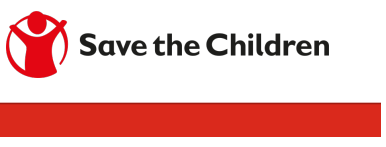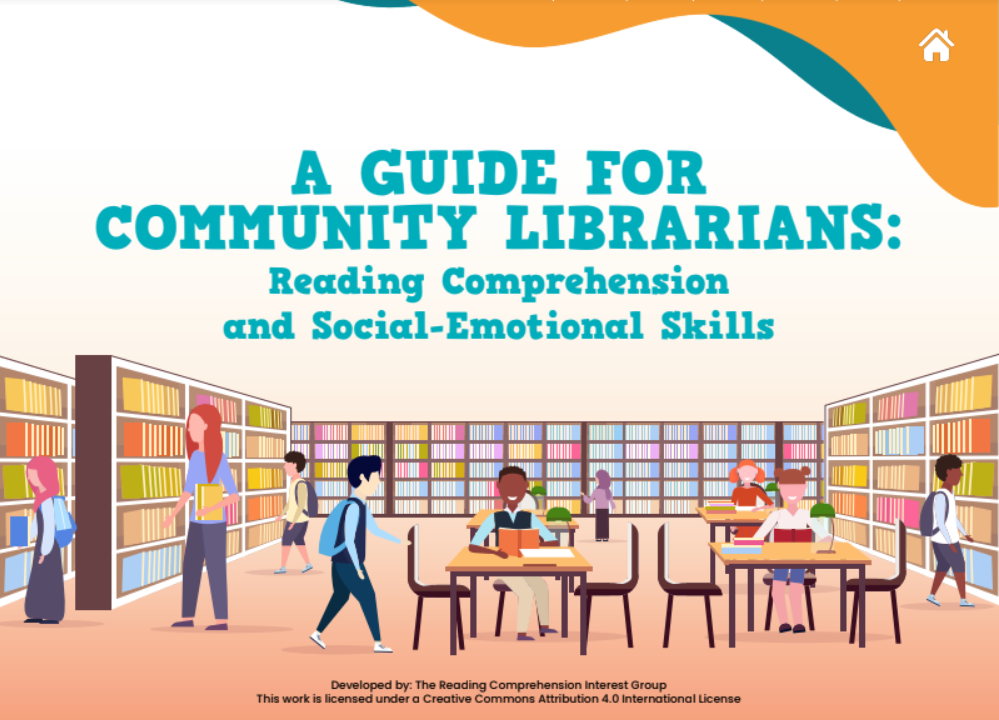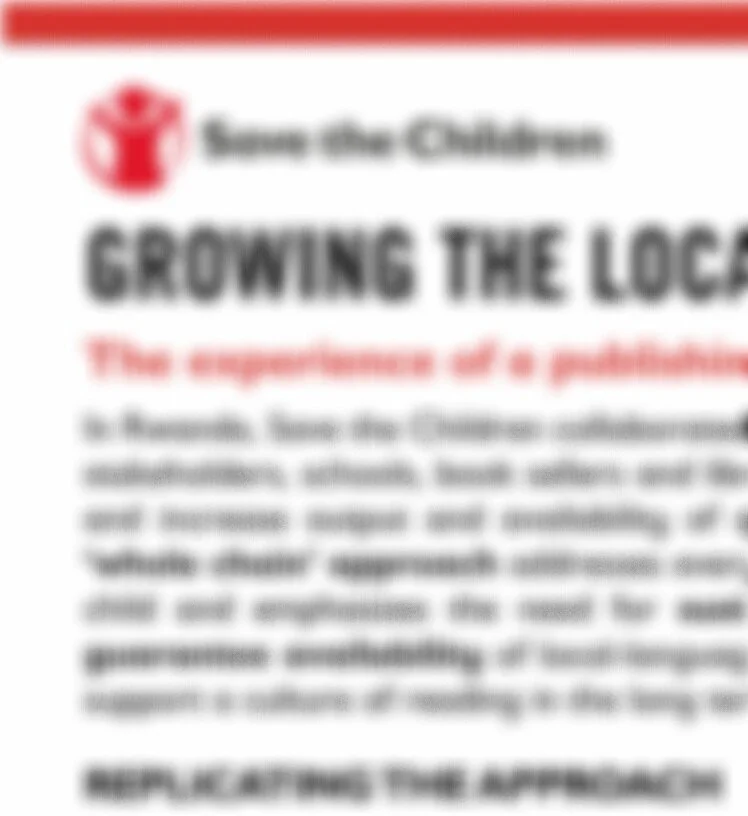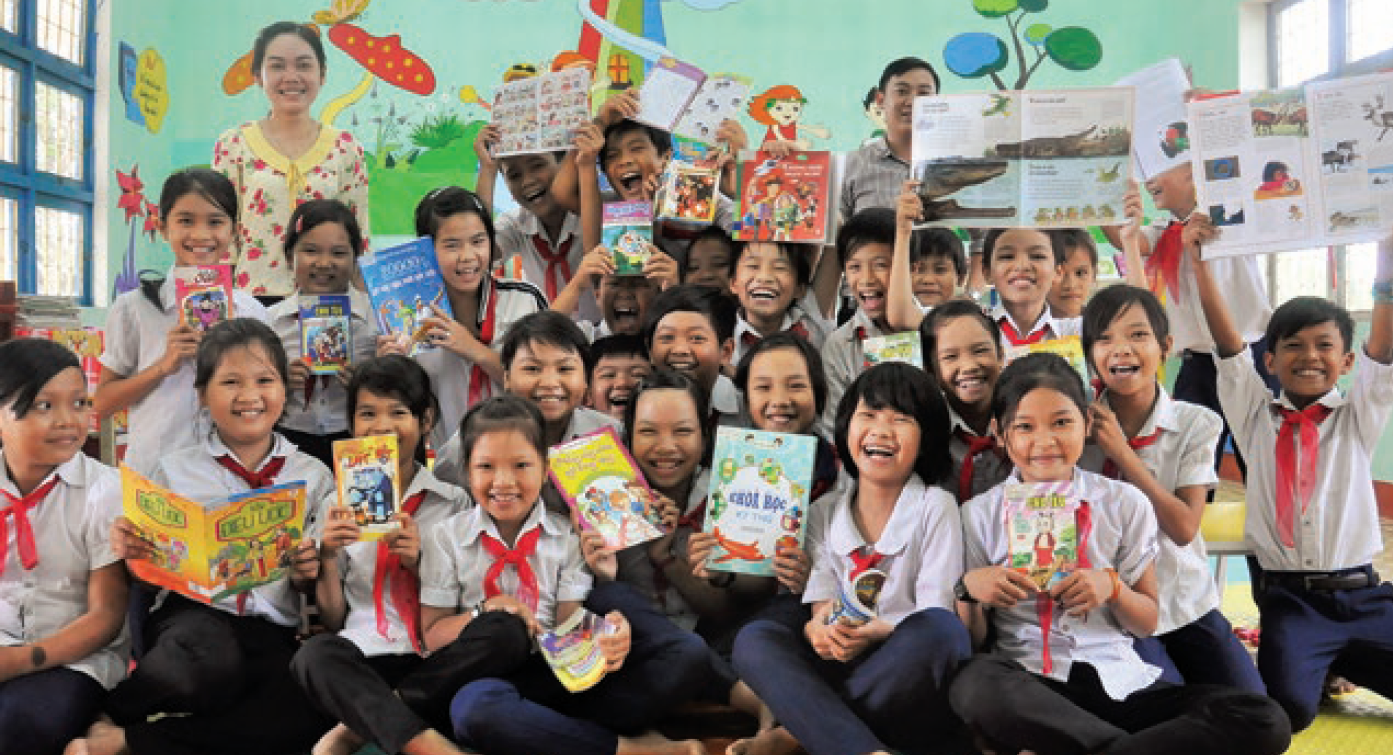In Rwanda, Save the Children collaborated with education ministries, publishing industry stakeholders, schools, book sellers and libraries in order to strengthen existing systems and increase output and availability of quality local language children’s books. This ‘whole chain’ approach addresses every step of a book’s journey from authorship to child and emphasizes the need for sustainable, profitable industries which will guarantee availability of local-language, contextually relevant reading materials to support a culture of reading in the long term.
A Practical Guide for Designing Track and Trace Systems for Teaching and Learning Materials
World Bank, 2022
A Practical Guide for Designing Track and Trace Systems for Teaching and Learning Materials
This guide (also available in French and Spanish) was created to help key country stakeholders understand and make the various decisions they must make in designing a Track and Trace (TnT) system, from initial conception through the “nitty-gritty” details of implementation. We begin with some of the biggest questions that need to be answered first when designing a new TnT system, such as “why are we designing a TnT system?” and “what do we want our system to be able to do?” This will help narrow the focus as we shift into more detailed discussions of technology options, deciding who will use the system and how they will interact with it, identifying key data pieces and their source, considering options for training users of the system, and identifying key performance indicators. Annexes at the end of these guidelines will discuss master datasheets, indicator reference sheets, additional technology considerations, and a longer form case study.
Embedding Track and Trace in Book Supply Chains, El Salvador
World Bank, 2022
Read@Home - Embedding Track and Trace in Book Supply Chains : Final Country Report - El Salvador
The Read@Home Track and Trace to Strengthen Book Supply Chains project involved the creation of a best practices guide to implementing track and trace solutions for Teaching and Learning Materials (TLM). Support was also provided to five target countries to adapt these best practices to the country context to enable the development of robust, locally-owned supply chain monitoring systems to ensure delivery of TLM to the schools and families that need them most.
Embedding Track and Trace in Book Supply Chains Track and Trace : Design Document - Niger
World Bank, 2022
Read@Home - Embedding Track and Trace in Book Supply Chains Track and Trace : Design Document - Niger
This system design document was compiled following workshops with key national stakeholders followed by subsequent key informant interviews and data collection. Expansive data collection and follow-on design and validation workshops were organized for those countries where it was possible. This design sets out the expected functionality of the technology to be used to improve the monitoring of the textbook distribution chain.
Embedding Track and Trace in Book Supply Chains : Final Country Report - Niger
World Bank, 2022
Read@Home - Embedding Track and Trace in Book Supply Chains: Final Country Report - Niger
The availability of quality textbooks is a basic requirement to enable children to learn, yet many countries are unable to ensure their young students have reliable access to these resources. Country supply chains often struggle to keep schools well supplied with learning materials, particularly in the hardest-to-reach places. Further, many children are unable to attend school at all, thereby missing out on many of the educational opportunities and programs that would otherwise be available to them. The current COVID-19 pandemic has only exacerbated these problems, as many children that would otherwise be in school are unable to access remote learning. The World Bank, through the Read@Home initiative, seeks to address these challenges by working with local education and supply systems to develop appropriate materials for home learning and deliver these materials directly to the families that need them, leveraging monitoring systems to ensure books are reaching students. In recent years, several textbook distribution and track and trace systems have been piloted to assist local supply systems in ensuring that education materials reach schools at the last mile. Through the World Bank-funded Read@Home: Embedding Track and Trace in Book Supply Chains initiative, John Snow, Inc. (JSI) and subcontractor World Education, Inc. (WEI), built on this global knowledge base by identifying a set of best practices in textbook delivery monitoring in low and middle-income countries. At the same time, the World Bank understands that context is vital in ensuring a successful supply chain monitoring system, so these best practices will have to be easily adaptable to different situations. To this note, JSI/WEI supported five target countries (Cameroon, El Salvador, Sudan, Niger, and Senegal) in understanding these best practices and adapting them to their own contexts by developing locally owned supply chain monitoring systems to ensure delivery of textbooks to the schools supporting children from families that need them most.
Embedding Track and Trace in Book Supply Chains - Cameroon
World Bank, 2022
Embedding Track and Trace in Book Supply Chains : Final Country Report - Cameroon
The Read@Home Track and Trace to Strengthen Book Supply Chains project involved the creation of a best practices guide to implementing track and trace solutions for Teaching and Learning Materials (TLM). Support was also provided to five target countries to adapt these best practices to the country context to enable the development of robust, locally-owned supply chain monitoring systems to ensure delivery of TLM to the schools and families that need them most.
Embedding Track and Trace in Book Supply Chains : Sudan
World Bank, 2022
Read@Home - Embedding Track and Trace in Book Supply Chains : Final Country Report - Sudan
The Read@Home Track and Trace to Strengthen Book Supply Chains project involved the creation of a best practices guide to implementing track and trace solutions for Teaching and Learning Materials (TLM). Support was also provided to five target countries to adapt these best practices to the country context to enable the development of robust, locally-owned supply chain monitoring systems to ensure delivery of TLM to the schools and families that need them most.
Embedding Track and Trace in Book Supply Chains : Senegal
World Bank, 2022
Read@Home - Embedding Track and Trace in Book Supply Chains : Final Country Report - Senegal
The Read@Home Track and Trace to Strengthen Book Supply Chains project involved the creation of a best practices guide to implementing track and trace solutions for Teaching and Learning Materials (TLM). Support was also provided to five target countries to adapt these best practices to the country context to enable the development of robust, locally-owned supply chain monitoring systems to ensure delivery of TLM to the schools and families that need them most.
Growing the Local Book Industry: The Experience of a Publishing Collaborative in Rwanda
Save the Children 2020
This guide to the ‘whole book chain’ approach addresses every step of a book’s journey from authorship to child and emphasizes the need for sustainable, profitable industries which will guarantee availability of local-language, contextually relevant reading materials to support a culture of reading in the long term.
Engaging the Private Sector Towards an Improved Literate Environment: A learning paper on book development in Rwanda
Save the Children 2020
Drawing on a desk review of program reports, reviews and case stories from 2014-2018, as well as key informant interviews with Save the Children staff, this paper includes an in-depth examination of the support provided to the book sector and the ensuing achievements, challenges, and learning. It also includes forward-looking recommendations for future support to the local publishing industry in Rwanda and considerations for the replication of the Save the Children book development approach in disparate contexts.
Global Book Fund (Global Book Alliance) Feasibility Study
Global Book Fund 2016
This comprehensive resource preceded the formation of the Global Book Alliance. Among other topics, it explores the challenges related to books and book supply chains, procurement and usage of books. There are statistics and facts that support a great need for addressing access to books worldwide.








